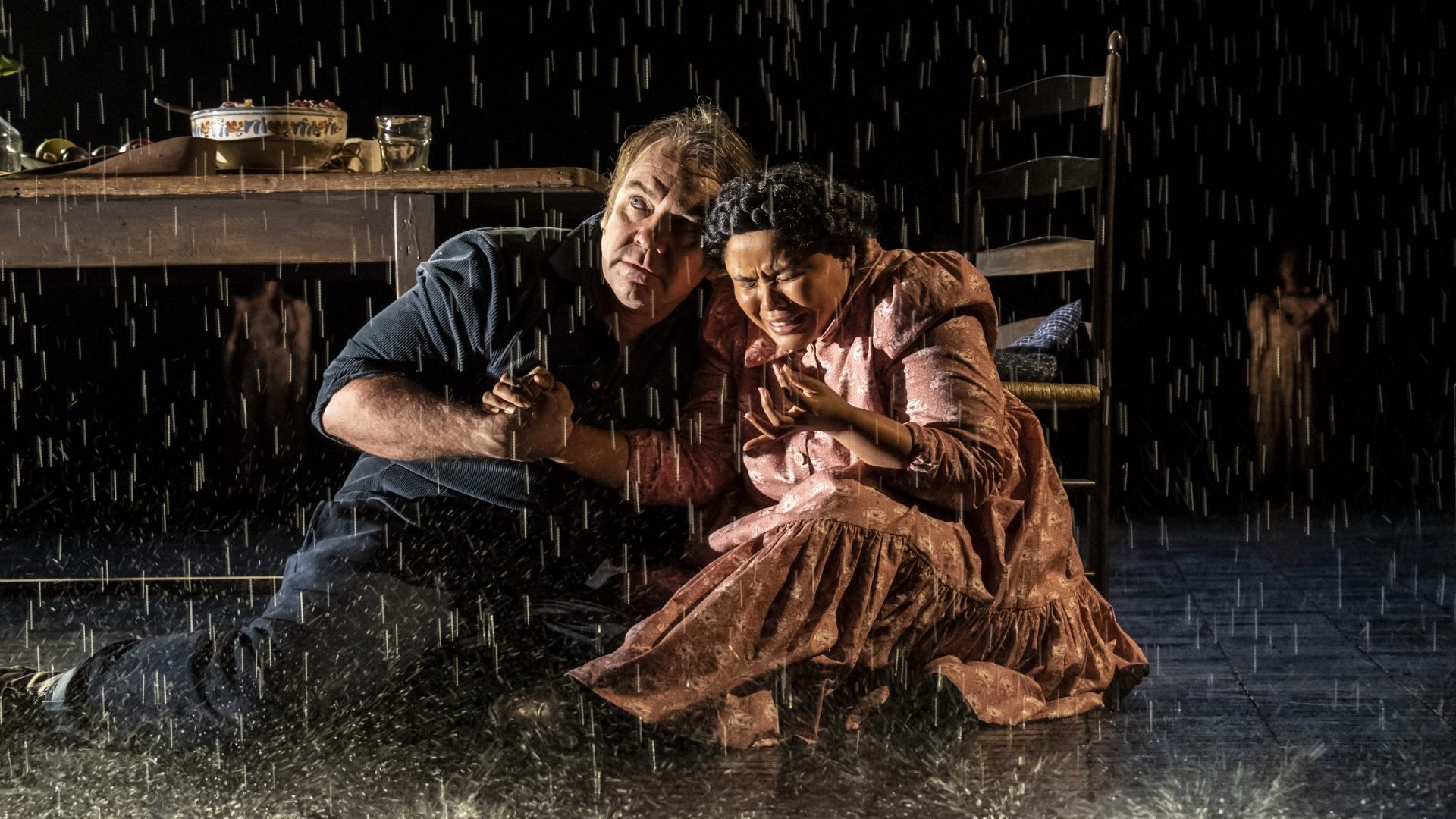The Crucible
National Theatre, London, until November 5
Theatre at its best is a revolutionary force, but, so far as this country is concerned, where so much has been happening that any sane society should
regard as intolerable, it has been curiously apathetic, if not compliant.
I’ve been banging on about this for some time now – felt sufficiently exasperated about it in fact to stage a play myself – and in this paper, I asked
rhetorically what Arthur Miller would have made of this gutlessness.
Miller wrote The Crucible as a direct attack on McCarthyism as it was happening in America in the 1950s and it did what theatre ought to do: it was a rallying call for decency.
Too late, the National has tried to register a vague sense of disapproval about the state of this nation and now, maybe because someone there has been reading this column, it has chosen to revive The Crucible.
Of course, I’d wanted our pre-eminent theatre to put on a play that addresses what’s happening here and now, but I suppose this revival is better than nowt. Miller used the 17th-century Salem witch trials as an allegory for what was happening in his day as Senator Joseph McCarthy tapped into the paranoia in America about alleged communist infiltration to demonise supposedly left-wing individuals and forward his own career.
The story of self-serving, manipulative bullies getting into a position of power and weak-willed individuals going along with them has contemporary resonance, but the state using religion to keep people in line made me think, too, of Afghanistan.
The director Lyndsey Turner’s production starts off with a heavy downpour, and there are quite a few downpours after that, presumably as a symbol of the cleansing power of water.
Erin Doherty – the young Princess Anne in The Crown – plays Abigail Williams, the young girl whose spurned affections result in the witch hunt.
Brendan Cowell as the man she dooms is on superb form and there are some great turns along the way from Karl Johnson as a bemused old witness to madness and Matthew Marsh as a delusional judge.
This is a fine, sumptuous revival, well performed, but its principal value is to
remind us all of a time when theatres and playwrights had real courage.




